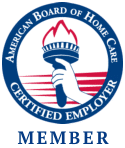Most of us had parents who cared for us through our childhood and early adult life. They fed and clothed us, bathed us, nursed us back to health when we were sick, provided shelter and protection and financial support, and a whole host of other wonderful, sacrificial duties. And like all loving parents, they were more than happy to do it. There really is nothing like the love a parent has for their child.
Now you’re grown. You haven’t needed those things from your parents for a while, but you find yourself in a place where your parents are needing more and more from you. Quite a role reversal, isn’t it? It feels strange when parents grow old and need their adult children to care for them. Yet now, with more and more Americans living well into their 70s and 80s, it’s happening more and more.
So what do you do? Are you up to the task? Becoming a family caregiver is no small feat, depending upon your parents’ needs. If you have a career, a family of your own, financial and other responsibilities (which you most likely do), you’ll have to learn how to balance those things while caring for your aging parents.
But let us tell you, there is no better way to say “thank you” to your parents for all the love and care they gave you, than to graciously care for them as they grow old. So if you are considering caring for your aging parents, thank you. You’re a testament to the human race.
Becoming a Family Caregiver
That’s not to say that you have to do it alone, however. In fact, we strongly recommend you don’t. Family caregivers are notorious for taking on too much, not asking for help, and consequently burning out. If you try to do too much by yourself, you are making yourself vulnerable to stress, health problems, relationship problems, and depression. It’s no joke.
Doctor visits. Filling prescriptions. Stocking the fridge. Making sure medications are taken. Cooking. Cleaning. Paying bills. Insurance and other paperwork. All these and more are tasks that a family caregiver must take on.
So enlist the help of other family members. Learn to delegate and ask for assistance. And call on quality professional caregivers like us at Canaan Home Care to help carry the load. We work with all major insurance companies, help secure VA benefits, and our rates are around 30% less than other home care companies, with even better quality caregivers.
Caring for Aging Parents – Which Sibling Should Do It?
Ideally you can sit down with your siblings and determine who should fill the primary caregiver role. Take into consideration such factors as:
- geographic location
- financial ability
- personality – who’s the best fit for the job?
Then determine how each of the other siblings can contribute and ease the load from the primary caregiver.
Here are some tips from WebMD regarding caring for your aging parents:
1. Open the lines of communication, before the time of crisis.
Sit down with your parents and siblings to discuss who will care for Mom and Dad and how you’ll care for them when the time comes. If one of you becomes the primary caregiver, discuss how each sibling will play a supportive role, whether it’s with finances, paperwork, or in-person help.
2. Figure out finances.
This can be a huge added stress on a family caregiver. Meet with a trusted financial planner to discuss whether it’s appropriate to add your parent a dependent on your tax return and other considerations.
3. When no one helps…
If your siblings won’t pitch in, ask for help from other family members or family friends. If that doesn’t work, it’s time to look for outside help from a professional home care company like Canaan Home Care.
4. Be empathetic.
As they say in the article, “It’s not all about you.” We tend to see family caregivers not taking good enough care of themselves – not eating right, not getting enough rest, not taking time out for themselves and nurturing their other relationships, and suffering the physical and emotional consequences of having the weight of the world on their shoulders. However, it is equally important to keep in mind that:
There are just as many mental hurdles that need to be overcome for the aging parent — like accepting care and depending upon someone else almost entirely later in life maybe when you’d like to be financially secure — as there are for the adult child in charge of their care.
[hr]
Above all, try to be grateful. Be grateful that you have the opportunity to thank your parents for all they have done for you. Be grateful that in their twilight years, you are able to spend time with them and make them comfortable. And know that in caring for your aging parent, you are making their life happier.
If we can help in any way, please contact us today. 1-844-CANAAN-1
- Follow These Four Steps and Create a Respite Plan - December 18, 2020
- End of the Year Holidays Can Cause Aging Veterans to Feel Lonely, but What About Home Care? - December 11, 2020
- Is Your Senior Battling Edema in Her Legs? - December 3, 2020




